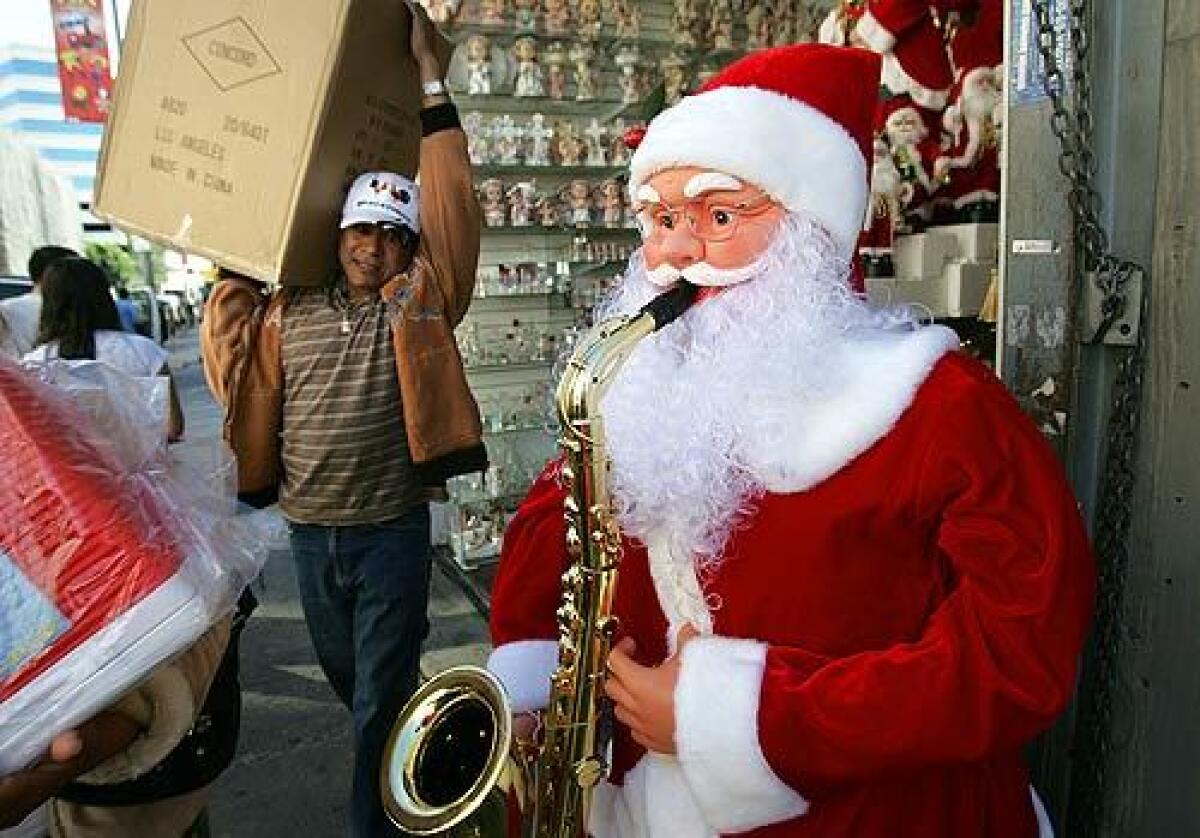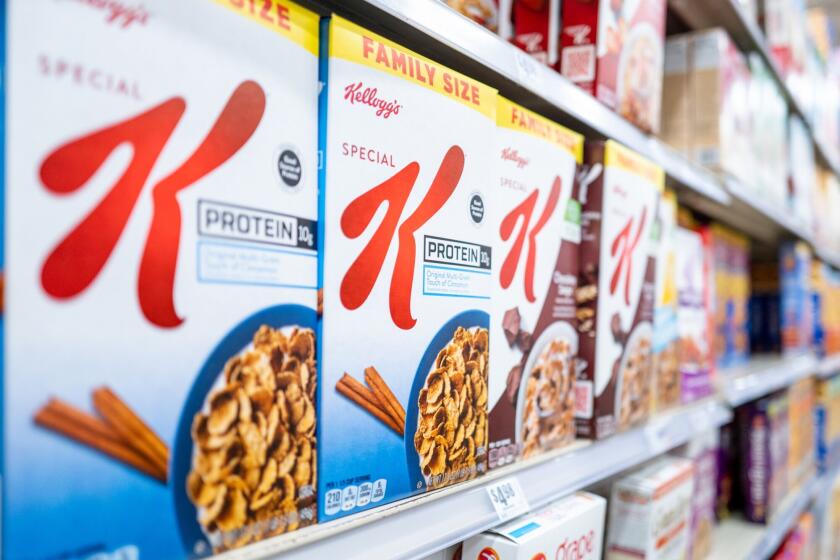Toys end up on Trump’s new China tariffs list just as Christmas shipments loom

- Share via
The toy industry -- which hadn’t previously been subject to U.S. tariffs -- suffered a body blow when President Donald Trump announced plans for a 10% tariff on an additional $300 billion of Chinese goods, expected to be implemented September 1.
“The tariff comes at a particularly bad time, because September represents the peak holiday shipping month,” DA Davidson analyst Linda Bolton Weiser wrote in a note. About two-thirds of Mattel Inc., Hasbro Inc. and Spin Master Corp. products sold in the U.S. are made in China, she says.
“All the companies have alluded to price increases,” she said. Weiser figures that with a 10% tariff, toymakers would only need to raise product prices by 5% in order to keep gross profit dollars unchanged; but gross margins would contract.
“Demand for toys is fairly price elastic, and consumers react when key price points are breached. Retailers plan to take set volumes of key holiday driver items at agreed-upon prices — it’s unclear how much flexibility toy companies will have to renegotiate prices on high-volume holiday drivers.” Toy companies will face at least some financial impact in the second half of year, Weiser said.
Mattel’s share price fell 3% Friday, to $13.14, and it is down 11% since Trump’s threat was issued Thursday. Hasbro shares fell 1% on Friday, to $113.51, and are down 7% since the announcement went out.
Jefferies’ Stephanie Wissink agrees that the tariff timing is not ideal given upcoming holiday toy shipments.
“It’s possible toy companies could expedite orders to arrive into the U.S. in August, but unless inventory is already produced and ready to ship, the timeline leaves little flexibility to react,” the analyst wrote in a note.
“The majority of toys for holiday 2019 will be tariff impacted” and there’s a possibility for volumes to be hurt as a result, she said.
Both analysts believe El Segundo-based Mattel may be more at risk than its toy-manufacturing peers.
“Mattel is disadvantaged versus Hasbro with regard to flexibility in moving its production,” according to Weiser. She noted that about 50% of Mattel’s manufacturing is outsourced, whereas almost all of Hasbro’s manufacturing is. Mattel may face a greater burden given it “vertically manufactures in China,” Wissink said.
On the other hand, Bloomberg Intelligence analyst Caitlin Noselli noted that Hasbro makes about 70% of its products in China versus less than 50% for Mattel.
“Hasbro’s procurement expenses during the critical holiday season are likely to rise more than at Mattel given its reliance on Chinese production,” she said.
More to Read
Inside the business of entertainment
The Wide Shot brings you news, analysis and insights on everything from streaming wars to production — and what it all means for the future.
You may occasionally receive promotional content from the Los Angeles Times.










